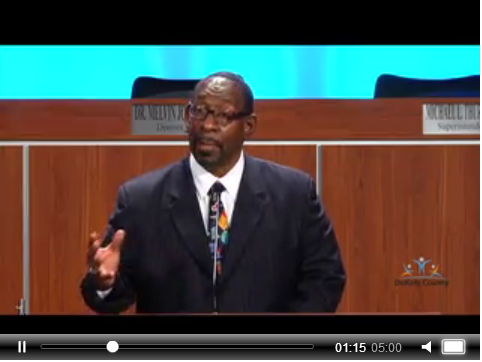Jarod Apperson recently wrote a response to one of Maureen Downey’s articles about the new proposed teacher salary model. He is a graduate of NYU in both finance and accounting, Apperson is pursing a doctorate in economics at Georgia State University, focusing on education data analysis. He writes the Grading Atlanta blog and serves on the board of the public, non-profit charter Kindezi Schools.
Having a focus on education data analysis and Ph.D. in economics I would ask Jarod what he thinks would be an acceptable new funding formula. Maybe he has made a recommendation and I have missed it?
Maureen agrees with Jarod in this synopsis of his comments:
It makes no sense to rely on the Legislature for a deep-dive reform of education. Lawmakers have neither the expertise to address what are complex questions nor the ability to respond with agility and accuracy to the fast-changing education landscape, witnessed by the fact the funding formula they’re attempting to revise goes back three decades.
Jarod describes the current formula this way:
Our current funding system, introduced in 1985, is complicated but the crux of it can be boiled down to this: about 63 percent of the money earned is based on needs of the students served while 37 percent of the money is driven by characteristics of the teachers employed, incentivizing schools to hire teachers who fit certain profiles that the state deems more valuable.
A state-level incentive structure makes sense if legislatures are incentivizing schools to do things that lead to greater achievement, but it is inefficient if the state is incentivizing things that don’t work.
The evidence suggests that Georgia’s Legislature is not very good at prescribing education approaches, and the current incentive structure implemented by the state does not align with what we know about the relative value of training and experience.
His demonstration of the legislature incentivizing things that do not lead to greater student achievement is how the pay scale jumps greatly for advanced degrees, but takes a teacher with a bachelor’s degree 14 years to make the same as a teacher with an advanced degree and no teaching experience. He recommends that we reward years of experience over the advanced degree also in an effort to retain our teachers.
For example, there is clear evidence teacher experience matters, and year-to-year improvements are particularly dramatic early in a teacher’s career. A fifth-year teacher is substantially more effective than a rookie.
If the state’s incentive structure were strategic, it would give teachers large raises in the first five years. Instead, Georgia teacher earnings grow a paltry $2,036 over that period, or about 1.5 percent a year. That’s measly compared to the early-career salary growth seen in other skilled professions like technology, accounting or engineering.
Rather than paying teachers substantially more as they gain valuable early-career experience, the state offers huge incentives for something that does not lead to greater student achievement: advanced degrees.
In Georgia, it takes 14 years for a teacher with a bachelor’s degree to reach the starting salary of someone with zero experience and a specialist degree. This emphasis on advanced degrees over experience is not strategic. It doesn’t benefit students and doesn’t make teaching a more attractive profession. Instead, the only real winners from this scheme are the degree-granting institutions that collect tuition from Georgia’s teachers.
Funding formulas are a problem all over the country. Some legislatures, like in Massachusetts, don’t want to admit that they haven’t met their own benchmark for funding schools because of the automatic infusion of cash required to fix it. So they make little tweaks to get by, but won’t commit to really fully funding schools.
The one thing I will say for Massachusetts that I don’t believe Georgia does, is MA adjusts its state contribution based on a formula of what the LEA can pay. In Worcester, the state paid ~75% of the total LEA budget. But in other LEA’s where the city could pay more of their share, the state paid a smaller % (and because the communities were affluent the cities contributed funds over the budgeted amount). It appears that in DeKalb County, the state contributes closer to 30% of the costs to run the school system and the county has to make up the remaining 70%.
It also sounds like the state is in a catch 22 where I assume the legislators want to see progress before they contribute more funding, but the schools are trying to say they need more funding to demonstrate progress.





 use in Decatur. Only 45 days on the job and everyone seems optimistic about his potential for success.
use in Decatur. Only 45 days on the job and everyone seems optimistic about his potential for success.
